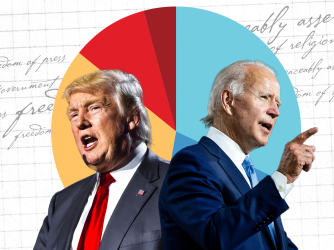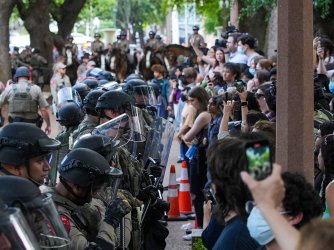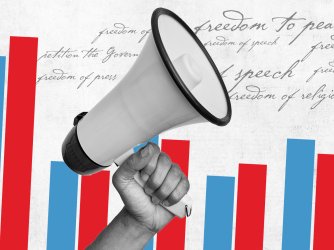Table of Contents
Problematic amendments to Texas budget fail, but troubling language remains

Shutterstock.com
Last week, we wrote about proposed amendments to Texas HB 1, the proposed budget for the state, which, if enacted, would have been unconstitutional. Thankfully, the amendments to which we objected were not adopted by the Texas House of Representatives. However, the bill passed the chamber and is now in the state senate, where a provision similar to the DEI amendment on which we commented has made its way into the bill. The provision reads:
Prohibition on Diversity, Equity, and Inclusion Practices. It is the intent of the Legislature that no funds appropriated by this Act may be expended for diversity, equity, & inclusion practices or similar programs, including personnel, training or activities, on state supported college campuses, state supported university campuses or those who receive state funding, notwithstanding state and federal law.
As we previously noted, while FIRE supports measures that aim to prohibit the use of political litmus tests in college admissions, hiring, and promotion decisions, vague amendments and bills like this raise serious First Amendment problems. Students and faculty must be permitted to organize DEI-related programming. State legislatures may constitutionally limit what messages institutions themselves convey and what trainings they organize, but they cannot legally restrict funding to student organizations and faculty based on viewpoint.
If this language were enacted unchanged, funds — including those used for promotion and hosting of events — could be denied to student organizations that want to host events on DEI issues. Similarly, institutions would be unable to use appropriated funds to send students or faculty to DEI conferences, thus targeting some content for disparate, unfavorable treatment. This provision should be rejected, or at the very least, changed to ensure the language does not authorize — or, especially, require — institutions to engage in content or viewpoint-based denial of any resource or benefit to a student, student group, or faculty member.
Throughout the budgeting process, FIRE will continue to urge the Texas legislature to oppose language that would violate the free speech rights of students and faculty.
Recent Articles
FIRE’s award-winning Newsdesk covers the free speech news you need to stay informed.

New FIRE poll: Americans equally skeptical Biden or Trump will protect First Amendment rights

Here’s what student journalists need to know about covering campus protests



